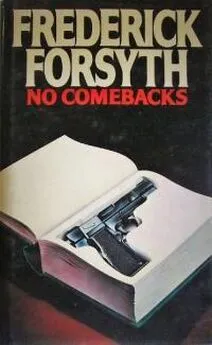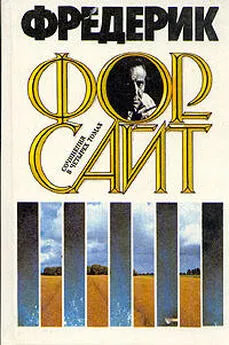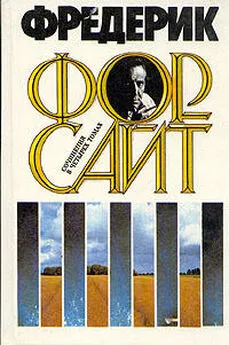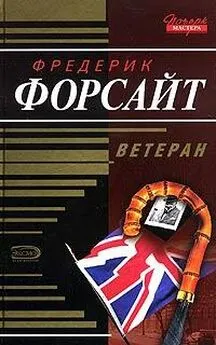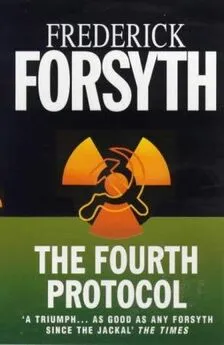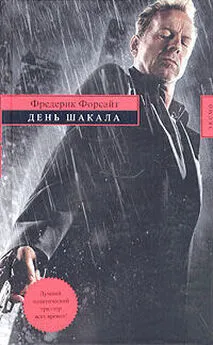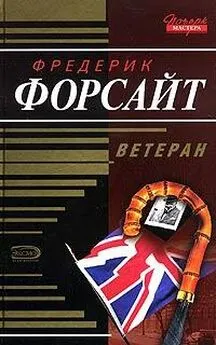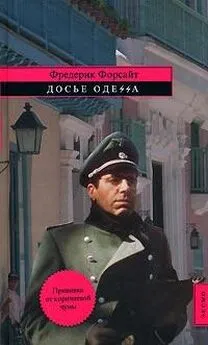Фредерик Форсайт - Нет возврата
- Название:Нет возврата
- Автор:
- Жанр:
- Издательство:Hutchinson
- Год:1982
- Город:London
- ISBN:0-09-147870-7
- Рейтинг:
- Избранное:Добавить в избранное
-
Отзывы:
-
Ваша оценка:
Фредерик Форсайт - Нет возврата краткое содержание
Перед Вами сборник из 10 рассказов, держащих читателя в напряжении, посвященных изменам, шантажу, убийствам и мести, кульминации которых шокируют неожиданными поворотами судеб. На этих страницах оживают персонажи, которых Вы не скоро сможете забыть. Живые люди бесповоротно оказываются в мире, из которого уже нельзя вернуться, если перейти "точку невозврата", перейдя от простого манипулирования покупкой и продажей человеческой жизни к смертельным актам насилия. Содержание:
1. Никаких улик
2. В Ирландии не водятся змеи
3. Император
4. Бывают же дни…
5. Шантаж
6. Used in Evidence - англ.
7. Абсолютная привилегия
8. Долг
9. A Careful Man - англ.
10. В дураках
Нет возврата - читать онлайн бесплатно полную версию (весь текст целиком)
Интервал:
Закладка:
Back at the site, all work had stopped. The demolition men in their oilskins and hard hats stood grouped in a circle in the rubble of the building. The remaining policeman was with them. Hanley strode from his car, picking his way over the shattered piles of brick, to where the circle of men stared downwards. From behind, the remnants of the crowd murmured.
'It's the old man's treasure,' whispered someone loudly from the crowd. There was a murmur of agreement. 'He had a fortune buried there; that's why he'd never leave.'
Hanley arrived at the centre of the group and looked at the area of attention. The short stump of the shattered chimney stack still stood, 5 feet high, surrounded by piles of debris. At the base of the stack, the old black fireplace could still be seen. To one side a couple of feet of outer house wall still stood. At its base, inside the house, was a collection of fallen bricks, from which protruded the shrunken and wizened, but still recognizable leg of a human being. A shred of what looked like a stocking still clung below the kneecap.
'Who found it?' asked Hanley.
The foreman stepped forward. 'Tommy here was working on the chimney breast with a pick. He cleared some bricks to get a better swing. He saw it. He called me.'
Hanley recognized a good witness when he saw one.
'Was it under the floorboards, then?' asked Hanley.
'No. This whole area was built on a marsh. The builders cemented in the floors.'
'Where was it, then?'
The foreman leaned down and pointed to the stump of the fireplace. 'From the inside of the sitting room the fireplace looked to be flush with the wall. In fact it wasn't. Originally it jutted out from the house wall. Someone ran up a quick brick wall between the chimney breast and the end of the room, forming a cavity twelve inches deep, right up to the room ceiling. And another on the other side of the fireplace to give symmetry. But the other one was empty. The body was in the cavity between the false wall and the house wall. Even the room was repapered to cover the work. See, the same paper on the front of the chimney breast as on the false wall.'
Hanley followed his finger; shreds of the same damp-mottled wallpaper adhered to the front of the chimney breast above the mantelshelf and to the bricks surrounding and part covering the body. It was an old paper with a rosebud pattern on it. But on the inside of the original house wall beside the fireplace, a dingy and even older striped wallpaper could be discerned.
Hanley stood up. 'Right,' he said. 'That's the end of your work for today. You might as well stand the men down and let them go. We'll be taking over from here.' The hard hats began to move back off the pile of bricks. Hanley turned to his two policemen.
'Keep the crowd barriers up,' he said. 'The whole place sealed off. More men will be coming, and more barriers. I want this place unapproached from any of the four sides. I'll get more manpower up here and the forensic boys. Nothing touched until they say so, OK?'
The two men saluted. Hanley heaved himself back into his car and called precinct headquarters. He issued a stream of orders, then had himself patched through to the technical section of the Investigation Bureau, tucked away in a grim old Victorian barracks behind Heuston railway station. He was lucky. Detective Superintendent O'Keefe came on the line, and they had known each other many years. Hanley told him what had been found and what he needed.
'I'll get them up there,' O'Keefe's voice crackled down the line. 'Do you want the Murder Squad brought in?'
Hanley sniffed. 'No thanks. I think we can handle this one at divisional level.'
'Do you have a suspect then?' asked O'Keefe.
'Oh, yes, we have one of those all right,' said Hanley.
He drove himself back to the caf6, passing Barney Keileher who was trying unsuccessfully to get back through the crowd barrier. This time, the patrolman on duty was not being nearly so helpful.
At the cafe, Hanley found his driver still at the counter. At the rear sat the old man, meal finished, sipping a cup of tea. He stared at Hanley as the giant policeman came over to him.
'We've found her,' said Hanley, leaning over the table and speaking so softly that no one else in the room could hear him.
'We'd better be going, had we not, Mr Larkin? Down to the station, now? We have to do a little talking, do we not?'
The old man stared back without a word. It occurred to Hanley that so far he had not opened his mouth. Something flickered in the old man's eyes. Fear? Relief? Probably fear. No wonder he had been afraid all these years.
He rose quietly and with Hanley's firm hand on his elbow went out to the police car. The driver followed and climbed behind the wheel. The rain had stopped and a chill wind blew toffee papers like autumn leaves down the street where no trees grew. The car drew away from the kerb. The old man sat hunched, staring ahead, silent.
'Back to the station,' said Hanley.
There is no country in the world where a murder investigation is a matter of inspired guesses as television would have it. They are 90 per cent plodding routine, formalities to be gone through, procedures to be fulfilled. And administration, plenty of that.
Big Bill Hanley saw the old man settled into a cell at the back of the charge room; he made no protest, asked for no lawyer. Hanley had no intention of charging him — yet. He could hold him on suspicion for at least twenty-four hours and he wanted more facts first. Then he sat at his desk and started with the telephone.
'By the book, lad, by the book. We're not Sherlock Holmes,' his old sergeant used to tell him, years before. Good advice. More cases have been lost in court by procedural screw-ups than have ever been won by intellectual brilliance.
Hanley formally informed the city coroner of the fact of a death, catching the senior civil servant just as he was leaving for his lunch. Then he told the city morgue in Store Street, just behind the bus terminal, that there would be a complex post-mortem that afternoon. He traced the state pathologist, Professor Tim McCarthy, who listened calmly on a telephone in the hallway of the Kildare Club, sighed at the thought of missing the excellent breast of pheasant that was on the menu, and agreed to come at once.
There were canvas screens to be organized, and men detailed to collect picks and shovels and report to Mayo Road. He summoned the three detectives attached to his precinct from their lunch in the canteen to his office, and made do with two sandwiches and a pint of milk as he worked.
'I know you are busy,' he told them. 'We all are. That's why I want this one tied up fast. It shouldn't take too long.'
He named his detective chief inspector to be scene-of-crime examiner and sent him to Mayo Road without delay. The two young sergeants got separate jobs. One was detailed to check into the house itself; the council official had said the old man owned it, freehold, but the rating office at the City Hall would have details of its past history and ownership. The register of deeds would clinch the final details.
The second detective sergeant got the legwork; trace every former occupant of Mayo Road, most of them now rehoused in the council apartment blocks. Find the neighbours, the gossips, the shopkeepers, the patrolmen who had had the beat including Mayo Road for the past fifteen years before its demolition, the local priest — anybody who had known Mayo Road and the old man for as many years back as possible. And that, said Hanley with emphasis, includes anyone who ever knew Mrs, that is, the late Mrs Larkin.
He dispatched a uniformed sergeant with a van to repossess all the personal memorabilia from the destroyed house that he had seen in the council van that morning, and to bring the abandoned furniture, fleas and all, into the police station yard.
It was past two in the afternoon when he finally rose and stretched. He instructed that the old man be brought to the interview room, finished his milk and waited five minutes. When he walked into the interview room, the old man was seated at the table, hands clasped in front of him, staring at the wall. A policeman stood near the door.
'Any word from him?' murmured Hanley to the officer.
'No, sir. Not a tiling.'
Hanley nodded for him to go.
When they were alone, he sat at the table facing the old man. Herbert James Larkin, the council records showed.
'Well, now, Mr Larkin,' said Hanley softly. 'Don't you think it would be a sensible thing to tell me about it?'
His experience told him there was no use trying to bully the old man. This was no street villain from the underworld. He'd had three wife-murderers in his time, and all of them mild, meek little fellows who had soon seemed relieved to get rid of the awful details to the big sympathetic man across the table. The old man slowly looked up at him, held his gaze for a few moments, and looked back at the table. Hanley took out a packet of cigarettes and flipped it open.
'Smoke?' he said. The old man didn't move. 'Actually I don't use them myself either,' said Hanley, but he left the pack invitingly open on the table, a box of matches beside it.
'Not a bad try,' he conceded. 'Holding on to the house like that, all those months. But the council had to win sooner or later. You knew that, didn't you? Must have been awful, knowing that they'd send the bailiffs for you sooner or later.'
He waited for a comment, any hint of communication from the old man. There was none. No matter, he was patient as an ox when he wanted a man to talk. And they all talked sooner or later. It was the relief really. The unburdening. The Church knew all about the relief of confession.
'How many years, Mr Larkin? How many years of anxiety, of waiting? How many months since the first bulldozers moved into the area, eh? Man, what you must have gone through.'
The old man lifted his gaze and met Hanley's eyes, maybe searching for something, a fellow human being after years of self-imposed isolation; a little sympathy perhaps. Hanley felt he Was nearly there. The old man's eyes swivelled away, over Hanley's shoulder to the rear wall.
'It's over, Mr Larkin. All over. It's got to come out, sooner or later. We'll go back through the years, slowly, plodding away, and we'll piece it together. You know that. It was Mrs Larkin, wasn't it? Why? Another man? Or just an argument? Maybe it was just an accident, eh? So you panicked, and then you were committed; to living like a hermit all your days.'
The old man's lower lip moved. He ran his tongue along it.
I'm getting through, thought Hanley. Not long now.
'It must have been bad, these past years,' he went on. 'Sitting there all alone, no friends like before it happened, just you and the knowledge that she was still there, not far away, bricked away beside the fireplace.'
Something flickered in the old man's eyes. Shock at the memory? Perhaps the shock treatment would work better. He blinked twice. I'm nearly there, thought Hanley, I'm nearly there. But when the old man's eyes moved back to meet his own, they were blank again. He said nothing.
Hanley kept it up for another hour, but the old man never uttered a word.
'Please yourself,' said Hanley as he rose. 'I'll be back, and we'll talk it over then.'
When he arrived at Mayo Road, the scene was a hive of activity, the crowd bigger than before, but able to see far less. On all four sides, the ruin of the house was surrounded by canvas screens, whipped by the wind but enough to keep prying eyes from seeing the job going on within. Inside the hollow square that included a portion of the roadway, twenty hefty policemen in heavy boots and rummage gear were pulling the rubble to pieces by hand. Each brick and slate, each shattered timber from the stairs and banisters, each tile and ceiling joist, was carefully plucked out, examined for whatever it might show, which was nothing, and tossed out into the roadway, where the rubble mounted higher and higher. The contents of cupboards were examined, the cupboards themselves ripped out to see if there was anything behind them. All walls were tapped to see if they contained hollow cavities before they were pulled down brick by brick and thrown into the road.
Читать дальшеИнтервал:
Закладка:
